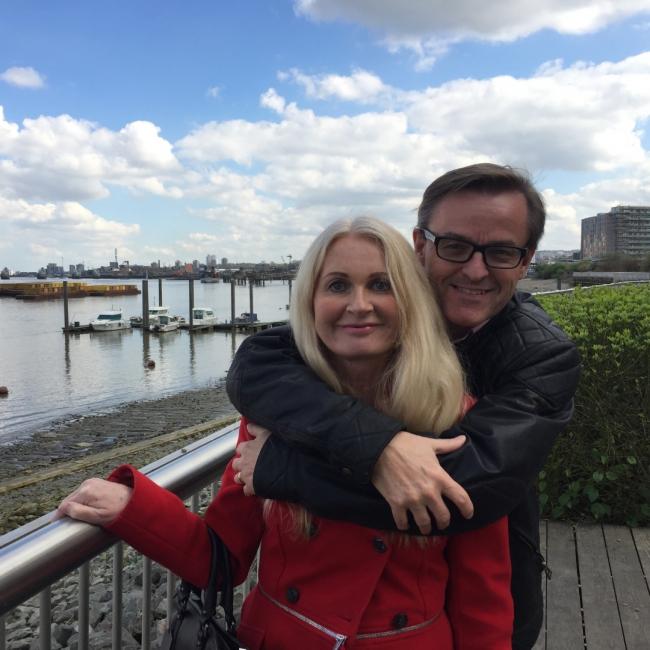
I am an ex-ballet dancer who has kept fit by practising and teaching pilates. I don’t smoke and have a healthy diet.
Four years ago, just after having a medical procedure on my back, I was involved in a road traffic accident where I was rear-ended by another driver. I had sleepless nights as I was in a lot of pain and was unable to teach.
But four weeks later my life changed even more dramatically. After having an unexpected stressful incident with two members of the public, I experienced a sudden onset of searing left-sided chest pain which radiated rapidly to my left shoulder blade and arm. When my breathing pattern changed and I started to feel clammy and nauseous I knew that something was very amiss.
The paramedics arrived swiftly and after enduring an eight hour wait in A&E, I was finally admitted to a ward the following morning. My ECGs were all irregular and worrying blood tests led me to spending six hours in cardiac care. I was then transferred to the John Radcliffe Hospital in Oxford where a swift battery of tests confirmed the issue was with my heart.
The cardiologist asked me if I wanted the good news or the bad news first. The good news was that I had very clear arteries. The bad news was that I had acute heart failure due to takotsubo cardiomyopathy (TTC).
Like many, including some doctors, I hadn’t heard of this condition which can be triggered by emotional stress. I believe that the combination of two stressful events relatively closely together caused my heart failure. I may have had a mild TTC attack after the traffic accident but it wasn’t investigated at that time.
I’m very keen to raise awareness of the condition not only with the general public and patients but also the wider medical community. TTC is still unrecognised in many cases or misdiagnosed and it can be a life-threatening condition in the acute phase.
Five months on I was still symptomatic with chest pain and other issues. I had two nuclear scans (a radioactive tracer is put in a vein in the arm and absorbed by tissues and organs which are then photographed by special cameras) which showed definitively that there was still an electrical storm going on in my heart. I was much relieved that here was a reason for the way I was feeling.
Now over three years later I am physically so much better! I still get daily heart rhythm problems which are, in my case, legacies of TTC. I had two procedures to help stabilise these arrhythmias but they were unsuccessful. Anti-arrhythmic drugs did not help so I decided to self-monitor at home using a portable ECG recorder that works with a smartphone or tablet. I know I can always get a report through to my specialist if I ever had any concerns. My energy levels are good and my zest for life is back.
In retrospect, many changes in my life have been for the better, although if I could erase the distress it has caused my loved ones I would be happier.
Because TTC was stress induced in my case and I’m determined not to have a repeat episode, I became thirsty for knowledge on the impact of stress on the body. This led me into a year of studying neuroscience and neurobiology as I wanted to understand the brain, mind and body connection. I’m studying towards an MSc in clinical psychotherapy and clinical hypnotherapy. Once qualified, I want to set up a practice where I can help people overcome stress and worry about their futures after being diagnosed with a heart problem. It will enrich my pilates work with people who are stuck in chronic pain.
Last year, I set up a Facebook TTC support group. 5 years on it now has 2.4k members affected by TTC from around the world as well as doctors and nurses. https://takotsubo.net/
TTC encouraged me to re-evaluate my work/life balance. Even though I had coped with working up to six days a week, sometimes until 10pm, I knew this was no longer sustainable. I hadn’t had the quality time I wanted with my family and TTC made me realise how precious time is. So now I have five teachers working for me and I choose the hours I want to work.